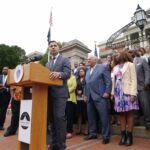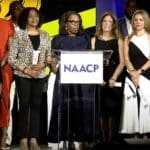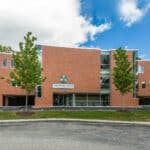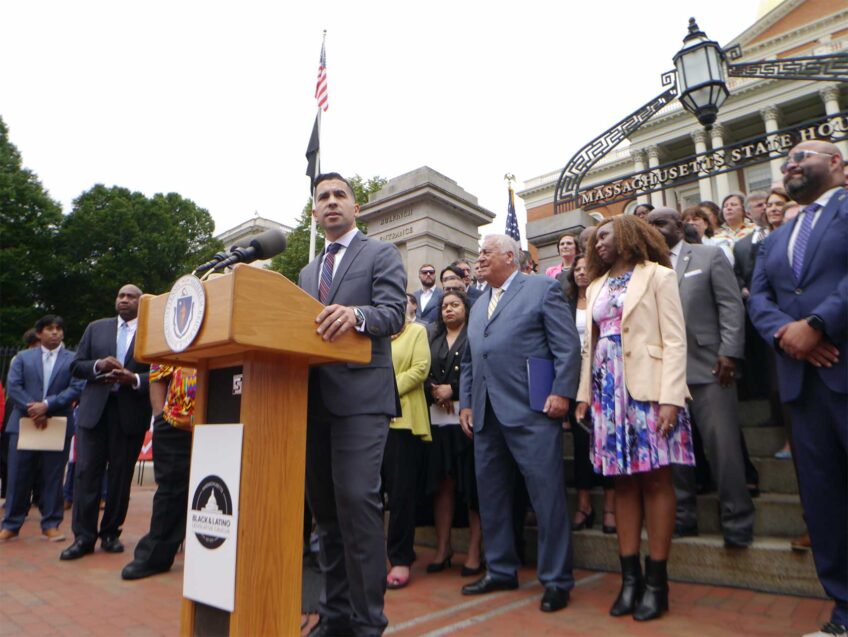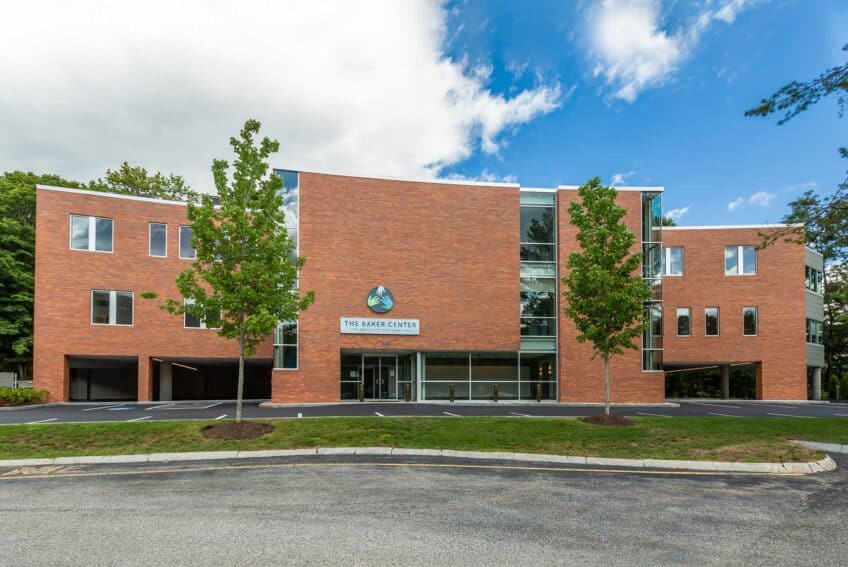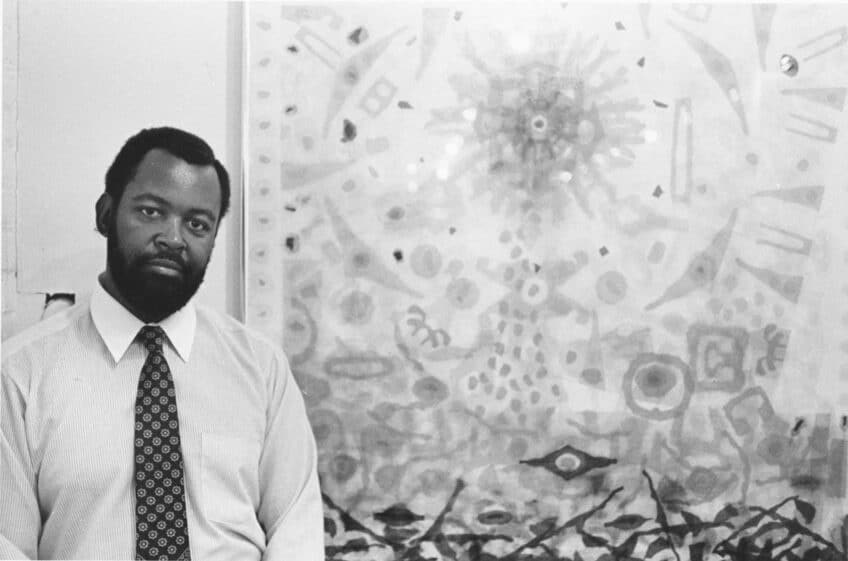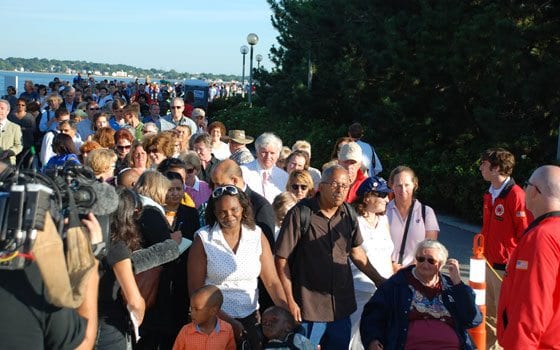

Author: APThrongs of mourners flocked to the John F. Kennedy Presidential Library and Museum in Dorchester to pay their last respects to the late senator.
Sen. Edward M. Kennedy, a lifelong champion of civil rights and social justice, bade his final farewell to the city he loved in the neighborhood where his legacy will long outlive his tenure in public office.
“This is where he made the biggest difference in the lives of the poor,” said the Rev. Michael Haynes after last Saturday’s moving two-hour funeral service at Mission Church in Roxbury. “The health care centers, schools, housing developments and social service agencies in our community were all in some way or another a part of his creation.”
The retired pastor of the Twelfth Baptist Church was one of nearly 1,400 mourners who waited patiently in the driving rain to file into the Basilica of Our Lady of Perpetual Help on Tremont Street for the Mass.
Thousands more lined the route of the funeral cortege from the John F. Kennedy Presidential Library and Museum, and crowded around the barricades set up around the church perimeter to pay their respects to the late senator, who died surrounded by his family after a long battle with brain cancer at his home in Hyannis Port just before midnight on Aug. 25.
An ‘extraordinary’ resume
Standing outside the church after the service, U.S. Rep. Jesse L. Jackson Jr., D-Ill., recalled campaigning for Sen. Kennedy in the neighborhood during his 1988 re-election race.
“Driving around, he would point out all the places he had visited or helped during his career,” said the congressman. “As you can imagine, it was tough to get a word in edgewise. His impact here was extraordinary.”
Just a look at the bricks-and-mortar is impressive. The grim and foreboding Mission Hill projects where unarmed cab driver James Bowden was gunned down by a police officer and where Charles Stuart carried out his racial hoax are long gone, replaced by a townhouse development funded by monies channeled through Sen. Kennedy’s committee.
The Orange Line at the base of the Mission Hill hums along the Southwest Corridor, financed with substantial federal funds obtained through the work of the late senator.
The nearby hospitals and medical research facilities, providing employment for thousands and healing for millions, relied for decades on Sen. Kennedy’s clout in the appropriations process.
The refurbished schools and Roxbury Community College have all drawn on federal construction subsidies, student grants and loans championed by Sen. Kennedy to educate a new generation.
The neighborhood was not just the focus of Sen. Kennedy’s legislative efforts, but also where he sought prayer and healing, quietly slipping into the Basilica of Our Lady of Perpetual Help between visits to his daughter Kara when she was receiving cancer treatment at a nearby hospital.
Not far away, at the home of Otto and Muriel Snowden on Schuyler Street or at the Freedom House, Sen. Kennedy huddled with Boston’s black leadership during the volatile busing crisis to discuss ways of keeping the city calm and the children safe. His support of the controversial school busing plan at a time when many politicians sought to run from the issue cost him dearly in neighborhoods bitterly opposed to the integration measure.
“That was an all-American stance,” said Haynes, who hosted the senator on numerous occasions at his Roxbury church. “He touched the heart of the community during the worst racial crisis ever to tear apart … the fabric of the city.”
Sen. Kennedy’s impact on national and international issues drew just as much praise.
The Rev. Martin Luther King III, moments after emerging from the church, remembered Sen. Kennedy’s fight to override President Ronald Reagan’s veto of a national holiday in honor of his father.
“I had to be here because of the courageous stand he took throughout his life on civil rights and his fight for the Martin Luther King holiday,” he said.
The Civil Rights Act of 1964, the Voting Rights Act of 1965, and the Fair Housing Act of 1968 all bore the senator’s stamp.
So did the Anti-Apartheid Act of 1986, which Sen. Kennedy ushered into law after cobbling together the votes to once again override the veto of the popular sitting president.
One of the first stops in Nelson Mandela’s triumphant U.S. tour after his release from prison on Robben Island was the Kennedy Library, where Sen. Kennedy gathered him in a warm embrace. Mandela acknowledged the profound impact that the economic blockade of the apartheid regime had in tearing down the walls of racial division in South Africa.
Medicare, Medicaid, the minimum wage, women’s rights and workers rights were all expanded and protected during Sen. Kennedy’s 47-year Senate career.
Sen. Kennedy’s influence was felt in other ways as well, like his commitment to diversity, providing hundreds of young African Americans with jobs as the starting point of long careers in public service. Ron Brown was among the most prominent, going from Sen. Kennedy’s Washington staff to eventually head up the Democratic National Committee during Bill Clinton’s successful rise to the White House and then on to the Clinton cabinet.
“His attention to hiring from our community was a practice started by his brother, John F. Kennedy,” said Haynes. “As a young congressman, he hired a member of the Twelfth Baptist congregation, Virginia Tabb, who went with him to Washington and never returned. Peter Parham from Roxbury, one of my interns on Beacon Hill when I served in the state Legislature, was hired by Ted Kennedy and went to Washington as well.”
Sen. Kennedy was also remembered for his advocacy for fair immigration laws and for his fight against heartless bureaucracies to allow loved ones to unite. Haynes turned to Sen. Kennedy when the State Department blocked a visa for his adopted Somalian son, Abdi Mohammad Ali, who is now a teacher and a citizen. In the last presidential election, he voted for Sen. Kennedy’s candidate and eulogist, Barack Obama, “the skinny black kid from Chicago with a funny name.”
Sen. Kennedy did much more. He fought against judicial appointees like Robert Bork and Clarence Thomas who opposed his broad vision of social equality and inclusion. He backed the appointment of black judges like David Nelson of Boston and Joyce London Alexander Ford to bring diversity to the bench. He stood up for gay rights. He fought against the death penalty and sentencing laws that disproportionately targeted black defendants and contributed to the rise of the prison industrial complex.
Sen. Kennedy also touched the lives of thousands in quieter ways, out of the glare of public attention. Having lost two siblings by the age of 16 and then two brothers to assassins, Sen. Kennedy, in spite of his titles, wealth and prominence, never missed an opportunity to console where consolation was needed, especially in his later years, when compassion and wisdom had long outlived ambition.
Choking back tears, one mourner, who asked that his name not be used, recalled getting three phone calls from Sen. Kennedy after his mother’s death.
“He was determined to reach me,” he said after the service. “He wasn’t going to give up until he could reach right through that phone and touch my heart. He really understood the loss of a family member. He really did.”
He did the same for every Massachusetts family who lost a loved one in the 9/11 terrorist attacks and in the wars in Afghanistan and Iraq. He believed deeply in beating swords into ploughshares and in the futility of sending young men and women to their deaths in defense of an uncertain cause.
Massachusetts Gov. Deval Patrick spoke for many during the senator’s life celebration at the Kennedy Library when he remembered what his mother used to say: “I love me some Kennedy.”

